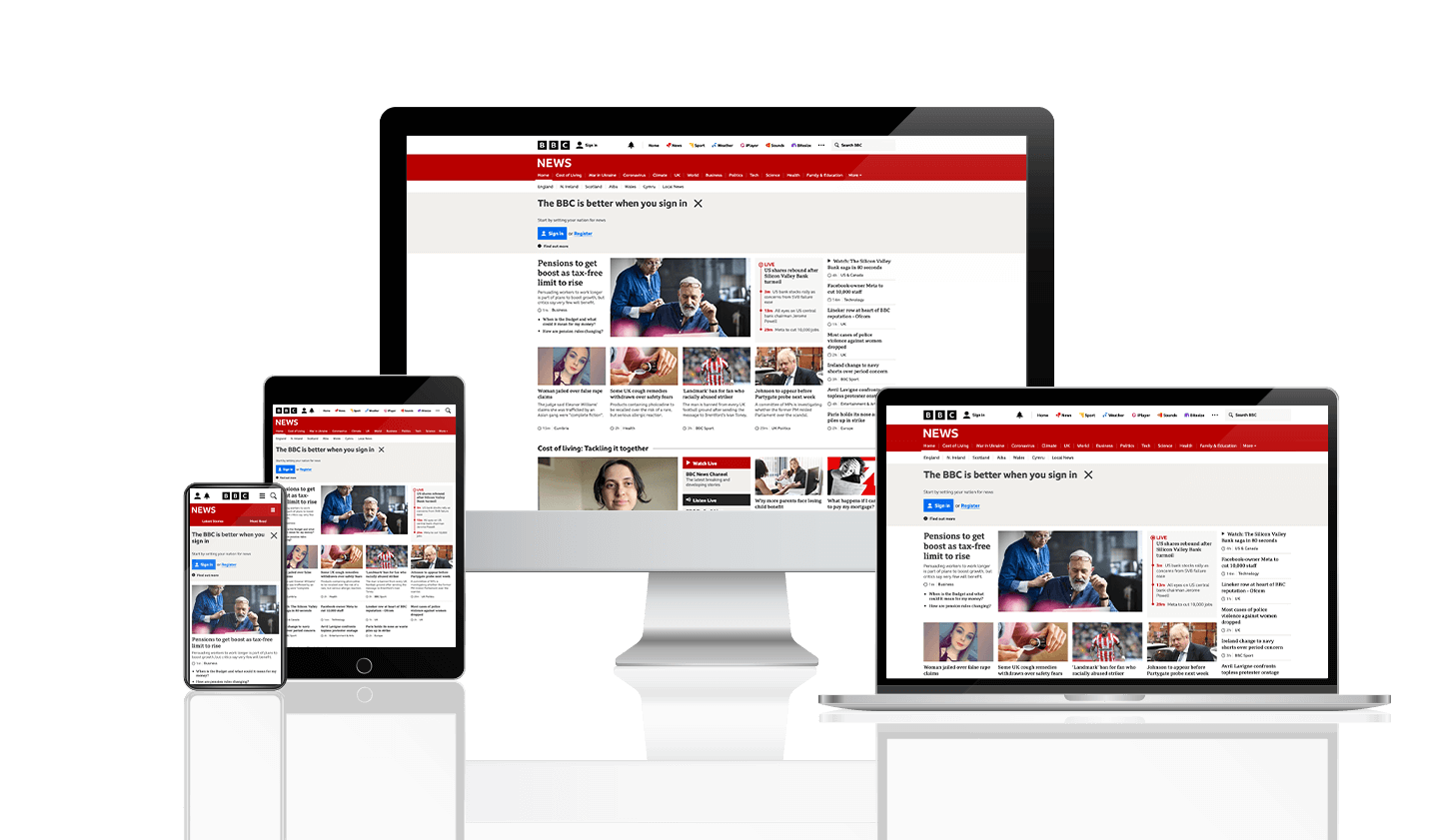Why stnews.live Excels in Multimedia Storytelling
The Relevance of Fact-Checking in the World of News Online
The prevalence of misinformation in today's online news landscape has gotten to startling degrees. Fact-checking companies play an essential role in counteracting this trend. They validate claims and enhance the reliability of journalism. Nevertheless, the performance of these companies typically hinges on their techniques and public understanding. As target markets browse this complicated atmosphere, the implications of their searchings for may form the future of news intake and depend on. What does this mean for the stability of information moving on?

The Surge of Misinformation in the Digital Age
How has the advent of electronic modern technology added to the spread of false information? The fast growth of the net and social media systems has actually promoted the circulation of details at an unmatched speed. Users can share posts, video clips, and point of views with a plain click, often without validating the web content's accuracy. Algorithms focus on spectacular or psychologically charged product, resulting in an expansion of deceptive stories that catch focus.
In addition, the privacy paid for by electronic platforms enables people to spread false details without accountability (stnews.live). False information grows in echo chambers, where customers are subjected mostly to point of views that reinforce their beliefs, better setting frauds. The saturation of details can bewilder customers, making it testing to discern legitimate resources from unreliable ones. False information has actually come to be a pervasive problem in the electronic landscape, affecting public viewpoint and trust in legit news resources.
The Role of Fact-Checking Organizations
Fact-checking companies play an important duty in improving the reliability of journalism by confirming cases made in news reports. Their efforts are essential in combating false information, guaranteeing that precise information prevails in the electronic landscape. By holding media electrical outlets responsible, these organizations contribute considerably to educated public discussion.
Enhancing Trustworthiness in Journalism
While false information multiplies in the electronic age, fact-checking organizations play a crucial duty in improving the integrity of journalism. These companies carefully validate cases made in newspaper article, public statements, and social media sites blog posts, making certain that info disseminated to the public is precise and credible. By supplying independent analyses, they work as a vital resource for reporters, aiding them preserve high standards of integrity. On top of that, their efforts advertise transparency in media, fostering public depend on. As target markets become significantly discerning, the visibility of credible fact-checking entities can identify dependable news resources from those that may spread out falsehoods. Ultimately, the dedication of fact-checking organizations to maintain truthfulness is vital for the wellness of democratic discussion.
Combating Misinformation Effectively
As misinformation remains to spread swiftly across electronic platforms, the duty of fact-checking companies ends up being progressively essential in the fight for precise details. These companies serve as guard dogs, inspecting cases made by somebodies and media outlets to assure responsibility. By employing strenuous study approaches and professional analysis, they verify truths and make clear misleading narratives. Their findings are distributed through different channels, informing the general public and fostering vital thinking. On top of that, partnerships with social networks systems enhance their reach, permitting for punctual flagging of incorrect details. As electronic proficiency grows, the influence of fact-checking organizations is necessary in encouraging target markets to determine reality from falsehood, inevitably adding to an extra educated society.
Just How Misinformation Affects Public Perception
False information substantially threatens rely on media, leading target markets to wonder about the credibility of news sources. Consequently, people often are attracted in the direction of electrical outlets that strengthen their current ideas, adding to the polarization of opinions. This dynamic develops a fragmented details landscape, where shared understanding becomes progressively tough to attain.
Trust in Media

Rely on media has actually come to be increasingly fragile in the electronic age, where the quick spread of false info can skew public assumption. As misinformation proliferates throughout social networks and online systems, audiences typically find it challenging to discern legitimate resources from unreliable ones. This uncertainty promotes apprehension, leading lots of individuals to question the objectives behind news reporting. Trust in developed media outlets has actually decreased, as customers significantly turn to alternate resources that might do not have extensive editorial standards. This disintegration of depend on not only affects individual ideas but also undermines the collective capacity to participate in informed conversations. Ultimately, the stability of journalism goes to stake, highlighting the vital demand for reliable fact-checking to bring back confidence in the media landscape.

Polarization of Opinions
The raising uncertainty toward conventional media has actually added to a growing polarization of opinions amongst the general public. False information, frequently distributed with social media sites and online platforms, plays a significant role fit distinct ideological divides. Individuals often look for details that lines up with their pre-existing beliefs, strengthening their perspectives while rejecting opposing point of views. This echo chamber effect magnifies divisions, resulting in a fragmented public discourse where agreement comes to be progressively evasive. In addition, sensationalized narratives thrive in this environment, better skewing public assumption and cultivating mistrust in reputable sources. As polarization intensifies, the requirement for effective fact-checking comes to be critical to connect spaces and promote notified conversations, inevitably ensuring a more cohesive culture efficient in maneuvering complex issues.
Techniques for Reliable Fact-Checking
Reliable fact-checking relies upon an organized strategy that consists of detailed research, confirmation of sources, and essential analysis of cases. A fundamental technique is cross-referencing details from several legitimate sources to validate its precision. Fact-checkers often use specialized data sources and archives to map the beginning of particular declarations, making certain that the reported info straightens with documented proof.
An additional crucial technique includes looking at the context in which claims exist. Deceptive information can occur from out-of-context quotes or discerning information use. By examining the wider narrative, fact-checkers can recognize possible prejudices or false impressions.
Involving with specialists in appropriate areas can give clarity and insight that enhances the fact-checking process. This partnership can discover subtleties that laypeople might overlook - stnews.live. Eventually, a self-displined strategy integrating these strategies promotes a more enlightened public, enhancing the integrity of information distributed in the digital age
The Influence of Social Media on News Consumption
How has social networks changed the way people eat news? The emergence of systems like Facebook, Twitter, and Instagram has notably transformed news consumption patterns. News is now shared swiftly, enabling users to access real-time updates and involve with content with sort, shares, and comments. This immediacy has actually fostered a choice for bite-sized information, usually at the expense of thorough evaluation.
Moreover, social media enables customized news feeds, where formulas curate material based upon customer preferences, creating echo chambers that may limit direct exposure to diverse point of views. The role of conventional news outlets has lessened as people progressively depend on peer referrals and trending topics. As a result, the integrity of info look at this web-site is typically jeopardized, as sensationalism can overshadow valid reporting. Generally, social media sites has reshaped news usage, highlighting speed and personalization while testing the criteria of journalistic integrity.
Equipping Target Markets to Recognize Reputable Sources

In addition, checking out the authorship and organizational history of news articles can reveal potential prejudices. Cross-referencing info throughout multiple respectable outlets further boosts the verification procedure. Using electronic tools, such as browser expansions that rate the reliability of web sites, can likewise aid in determining credible info. By proactively involving with these sources and growing a critical state of mind, audiences can much better equip themselves to discern trustworthy news resources, ultimately promoting a much more educated culture in the middle of the intricacies of today's media atmosphere.
The Future of Journalism and Fact-Checking
As the media landscape evolves, the future of journalism and fact-checking faces both tests and opportunities. The surge of electronic platforms has democratized info circulation, allowing varied voices to arise. However, this has actually also caused the proliferation of misinformation, necessitating durable fact-checking mechanisms. Journalists will increasingly rely upon modern technology, including AI devices, to verify facts swiftly and efficiently.
Partnership between news companies and fact-checking entities is prepared for to strengthen credibility and openness. Moreover, target market interaction will play a crucial role, as notified viewers become significant companions in recognizing trustworthy web content.
The demand for responsibility and precision is likely to expand, pushing journalists to promote high requirements in their coverage. Ultimately, the future of journalism may rest on its ability to adapt to technological developments while keeping journalistic stability, guaranteeing that fact-checking stays a keystone of trustworthy news.
Frequently Asked Inquiries
Exactly How Can I Report False Information I Encounter Online?
To report misinformation run into online, individuals can utilize platform-specific coverage tools, offer clear proof, and share the information with fact-checking organizations. Involving with community discussions can additionally assist increase recognition regarding the false information.
What Prevail Indications of Misinformation in News Articles?
Common indications of false information in news posts include marvelous headlines, lack of reliable sources, emotional language, irregular truths, and absence of writer credentials. Viewers ought to seriously evaluate material for these signs to recognize precision.
Just How Do Fact-Checkers Confirm Sources?
Fact-checkers validate resources by see this here cross-referencing info with credible databases, getting in touch with specialists, and examining the original context of insurance claims. They additionally look at this site analyze the dependability of the sources, guaranteeing accurate and reliable info for public intake.
What Lawsuits Can Be Taken Against Misinformation?
Lawsuits versus false information may consist of disparagement lawsuits, cease-and-desist orders, and regulatory fines. Victims can seek remedy with civil courts, while some jurisdictions impose penalties or permissions on systems distributing incorrect details.
Exist Apps for Fact-Checking News On-The-Go?
Various applications exist for fact-checking news on-the-go, including Snopes, FactCheck.org, and PolitiFact. These applications help customers verify insurance claims promptly, advertising informed decision-making and cultivating a more critical strategy to consuming news in real-time.